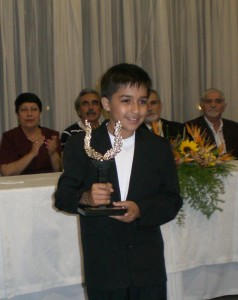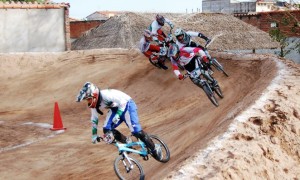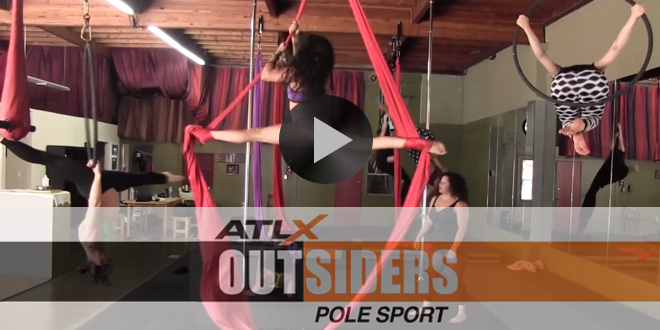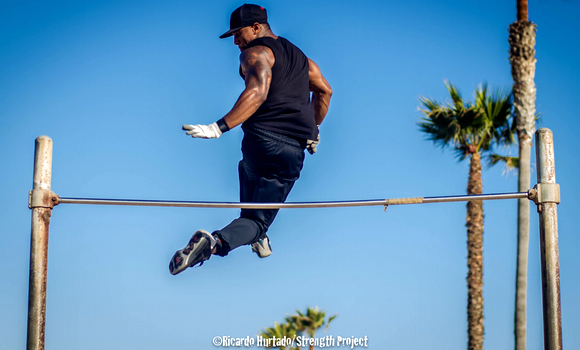By: Sarah McWilliams
 Sixteen-year-old BMX rider, Jaime Quintanilla Cuenca plans on winning the 2016 Summer Games. While dreams of the Olympics are ambitious for anyone in the world, for someone growing up in a country with major economic and infrastructure problems, those dreams are almost outrageous.
Sixteen-year-old BMX rider, Jaime Quintanilla Cuenca plans on winning the 2016 Summer Games. While dreams of the Olympics are ambitious for anyone in the world, for someone growing up in a country with major economic and infrastructure problems, those dreams are almost outrageous.
Almost.
When Quintanilla was six years old, no one told the Santa Cruz, Bolivia native that he lived in a poor country, that BMX was not popular and the challenges would be great. It probably wouldn’t have mattered if they had. When some older BMX riders taught him how to ride and took him to the track, he was hooked.
“Two months later, I competed in my first national tournament and won my first trophy,” Quintanilla said. “That’s what propelled me to move forward.”
Ten years later, Quintanilla has won too many medals to count and spends countless hours training on the track and in the gym. “This year I started lifting weights and doing more cardio.” Quintanilla told ATLX. His new training regimen has taken him to the next level, leading Quintanilla to a seventh place finish in the expert category and a second place finish in the cruise category in the Pan-American games in Argentina.
In Bolivia, what little money is available for the government to contribute to sports goes to the country’s main game: soccer. Since Bolivian companies aren’t offered the corporate incentives for sponsorship and donations that are available in the United States, should they decide to spend their money, it goes to the highly visible sport of soccer, not to a BMX rider.
 While Americans have athletic opportunities at the collegiate level, there are no college athletic teams in Bolivia, and the requirements to attend college in the United States are nearly unattainable. The family of the athlete must have the financial resources, they must have the grades and test scores, and they must learn English – a nearly impossible feat where very little English is spoken and resources to learn are scarce.
While Americans have athletic opportunities at the collegiate level, there are no college athletic teams in Bolivia, and the requirements to attend college in the United States are nearly unattainable. The family of the athlete must have the financial resources, they must have the grades and test scores, and they must learn English – a nearly impossible feat where very little English is spoken and resources to learn are scarce.
In other Latin American countries, stars have paved the way for kids to dream. In Puerto Rico, many children aspire to be boxers and know that it’s possible because of legends like four-time world champion Miguel Cotto or five –time world champion Felix Trinidad. In Venezuela, kids have baseball players littered throughout the MLB that have proven anything is possible.
In Bolivia, there are few, if any, international superstars.
Quintanilla plans to change that.
In 2016, the Olympics will be hosted next door to the Santa Cruz, Bolivia native’s home in Brazil. But if all goes well, Quintanilla will be traveling from the United States where he has dreams of training in better facilities than his homeland has to offer.
He is currently in discussions with international corporations for potential sponsorships and endorsements to take away some of the financial burden of training and equipment.
 While there are BMX tracks available in Bolivia, Quintanilla has long since passed the level of the tracks and competitors there. The United States offers faster tracks and tougher competitions for Quintanilla to hone his skills in preparation for the Olympics.
While there are BMX tracks available in Bolivia, Quintanilla has long since passed the level of the tracks and competitors there. The United States offers faster tracks and tougher competitions for Quintanilla to hone his skills in preparation for the Olympics.
It’s not just on the track where Quintanilla is focused. While most 16-year-olds utilize their seemingly invincible metabolism to scarf down pizza and burgers, he must maintain a strict diet in pursuit of his dream. Quintanilla does not stray from the diet his trainer has provided him.
“I try to eat as healthy as possible,” Quintanilla said. “I do not eat any fast food, fried food, or soda. It is very clear to me that my nutrition is fundamental as an athlete in order to perform at a high level.”
 Quintanilla has yet to lose a National Championship in his home country, and his accomplishments don’t stop there. At the age of seven, the biker took the Championship in the President’s Cup hosted in Miami, Fla. At fourteen, Quintanilla grabbed the gold in the Pan-American races hosted in Argentina. He also took the top place at both the South American and Latin American championships in Brazil at 15 years old, a third place finish at the Disney Cup in Orlando, and a second place finish in the Comissioner’s cup in Sarasota in 2012.
Quintanilla has yet to lose a National Championship in his home country, and his accomplishments don’t stop there. At the age of seven, the biker took the Championship in the President’s Cup hosted in Miami, Fla. At fourteen, Quintanilla grabbed the gold in the Pan-American races hosted in Argentina. He also took the top place at both the South American and Latin American championships in Brazil at 15 years old, a third place finish at the Disney Cup in Orlando, and a second place finish in the Comissioner’s cup in Sarasota in 2012.
With American sponsorship opportunities in the works, Quintanilla may soon be able to afford the move to the United States to refine his skills at world-class training centers. Up until now, his parents have had to work hard to support Quintanilla’s dreams, but corporate sponsorships will provide unlimited opportunity to equip his vast potential.
With a lot of work and a little luck, Bolivia will finally have that international star for other kids to look up to.
To follow Quintanilla’s journey like his facebook page here. For media inquiries email: teamquintanillac@gmail.com
 ATLX The only sports entertainment television and digital media network fully devoted to everyday athletes, athletic lifestyle and athletic culture.
ATLX The only sports entertainment television and digital media network fully devoted to everyday athletes, athletic lifestyle and athletic culture.




